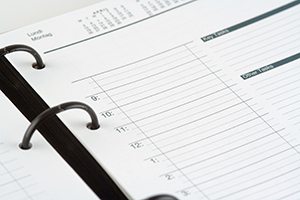Most expats forget about their tax status once they have left Britain and assume they pay taxes in the country where they live.
To some extent this is true – but HM Revenue & Customs regularly challenges the validity of non-residence claims and the long-arm of the tax man can extend over many miles and even many years.
That’s why tax advisers suggest expats keep a diary to give them an international residence timeline.
It sounds like a lot of work, but the trouble is an expat will never really know the worth of that work until having to fight off an assault from HMRC.
The recent introduction of the statutory residence test has made keeping this diary even more important, as days spent in the UK and overseas define tax residency.
Why prove tax residency?
Tax residency also goes further than paying tax – some expats might want to prove they are UK tax resident so they can grab generous tax breaks on the Seed Enterprise Investment Scheme (SEIS), pension contributions and ISAs.
On the other hand, expats who want to avoid UK income tax on their earnings or who want to switch a UK onshore pension to a Qualifying Recognised Overseas Pension Scheme (QROPS) will want to show that they are not tax resident.
So what sort of records does an expat need to show their tax status?
Lawyers and accountants talk about ‘points to prove’. That means showing that qualifying rules of each section of the statutory residence test are properly addressed in keeping records.
For instance, the statutory residence test talks about a ‘sufficient hours overseas test’ that shows how long an expat works each week.
Keeping an expat diary
Because the lawmakers wrote the rules in such away, sometimes a year has an extra day, and if the timeline does not account for that extra time, then a non-resident could suddenly find they are UK tax resident.
An insight into the way HMRC thinks comes from recent tax tribunal cases:
Cash machine withdrawals, card purchases and business banking transactions were used by tax inspectors to track the movements of a couple claiming non-residency – and showed their ties to Britain were stronger than they argued.
The result was the tribunal decided they were still UK resident and liable to pay a significant amount of tax in Britain.
Another case challenged the claim of a billionaire who had left the UK 20 years before HMRC started their investigation.
However, this businessman had kept extremely detailed financial and travel records and successfully rebuffed the HMRC argument that he was UK tax resident – and saved himself £8 million in taxes in the process.
“Airline boarding cards, bank statements, credit card statement and diaries had to be scrutinised in order to prepare the statement,” said the tribunal. “We consider shows meticulous and straightforward record keeping that speaks for itself.”
